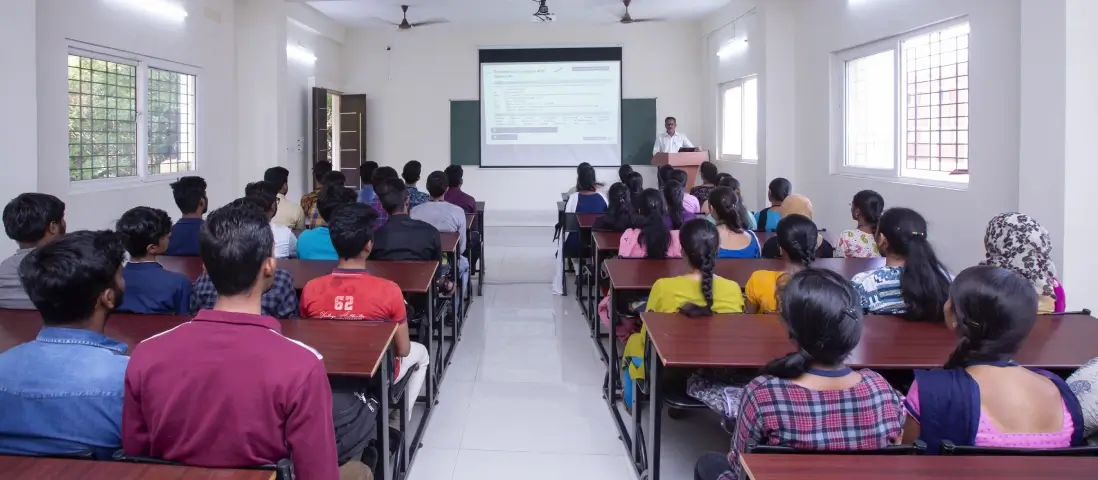The Electrical & Electronics Engineering department is equipped with cutting-edge infrastructure designed to foster advanced learning and research. It features specialized laboratories for power systems, electronics, and renewable energy studies, along with dedicated research centers that support high-impact, collaborative projects. The department also provides high-performance computational facilities and simulation software, enabling complex modeling and analysis. Hands-on workshops and maker spaces allow students to prototype and test projects, while modern classrooms with multimedia capabilities enhance the overall learning experience. Together, these resources create a strong foundation for quality education and innovative research in the field.
Labs
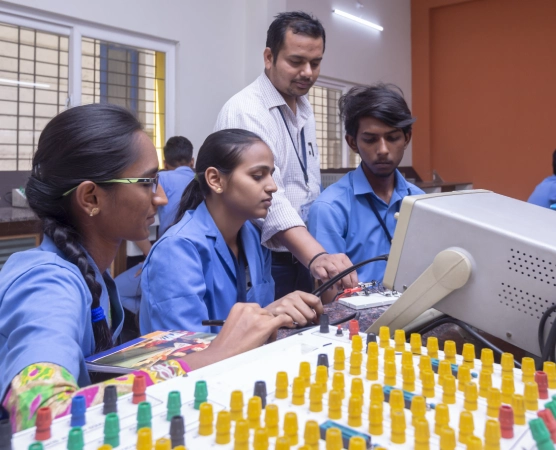
Analog and Digital Electronics Lab
An Analog and Digital Electronics Lab provides hands-on experience in designing, analyzing, and testing circuits that utilize both analog and digital components.
These labs are essential for understanding the principles behind the devices and systems that form the foundation of modern electronics from signal processing to computing and communication systems.
Electrical Machines Lab
Electrical Machines Lab serves as a pivotal resource for students seeking to develop their understanding of electrical engineering, particularly in the design, control, and optimization of electrical machines.
It provides hands-on experience with various types of machines, including DC, AC, stepper, brushless, and universal motors. Key equipment and components include DC motors, DC generators, AC machines, stepper motors, brushless DC motors, and universal motors.
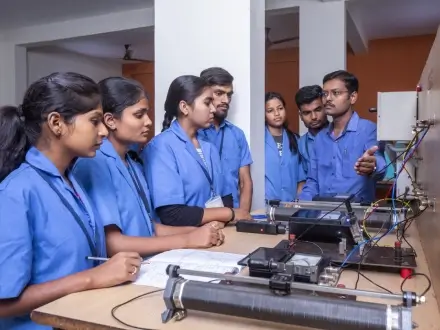
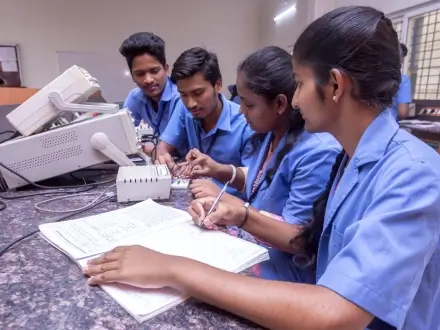
Power Electronics Lab
A Power Electronics Lab focuses on the study, design, and testing of electronic devices and systems that convert and control electrical power.
Power electronics are used in a wide range of applications, from renewable energy systems to electric vehicles and industrial machinery.
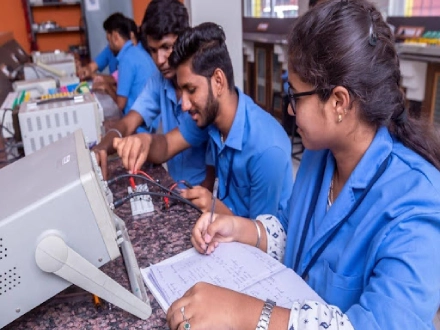
Control Systems Lab
A Control Systems Lab is a crucial part of engineering disciplines, involving practical experiments and simulations to understand and implement control theory principles. Key components include transfer functions, stability analysis, time-domain response, root locus analysis, feedback systems, state-space analysis, and controllability and observability. Simulation software like MATLAB/Simulink, LabVIEW, and SCILAB are used for modeling, simulating, and analyzing control systems. Practical implementations include DC motor speed control, inverted pendulum control, temperature control systems, and servo motor control. Advanced topics include robust control, adaptive control, and digital control systems.
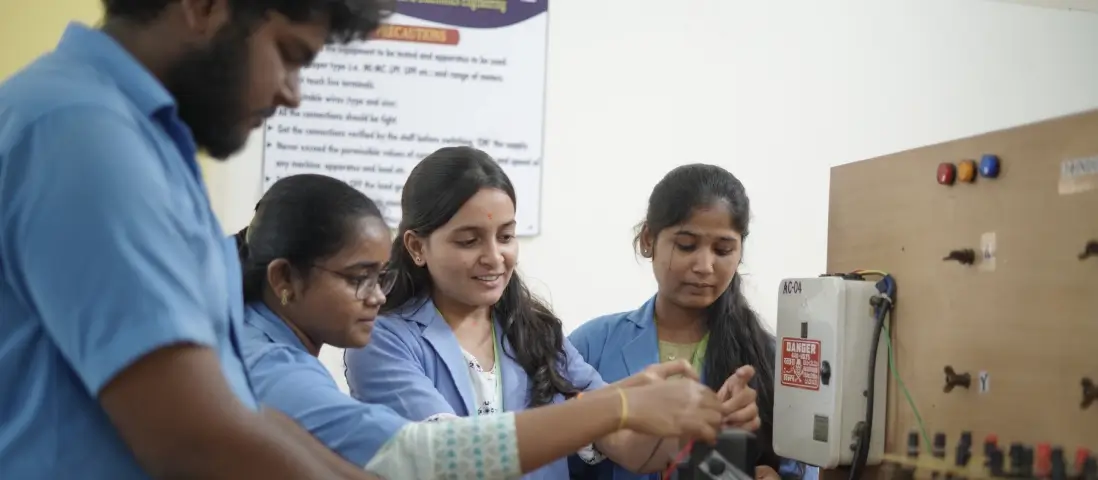
Relay and High Voltage Lab
A Relay and High Voltage Lab is a crucial educational institution in electrical engineering, focusing on the study of protection systems, relays, and high-voltage equipment in power systems.
It involves various aspects such as overcurrent protection, distance protection relays, differential protection schemes, directional overcurrent relays, and under/over voltage relays.
Classrooms
The department boasts six spacious and well-lit classrooms and one Seminar Hall, each equipped with CCTV cameras to enhance security.
Designed with an emphasis on sustainability and accessibility, these classrooms also include complete power backup. Modern amenities such as LCD projectors, Wi-Fi connectivity, and black/green boards create a supportive and innovative learning environment for all students.
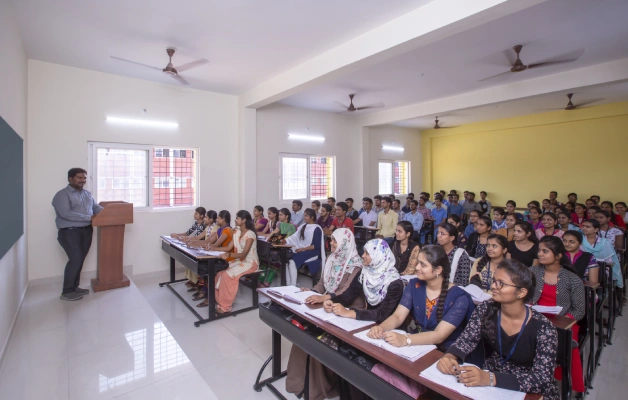
Seminar Hall
The department has a well-equipped seminar hall with a seating capacity of 90. It features a complete audio-visual system used for seminars, and project presentations.
